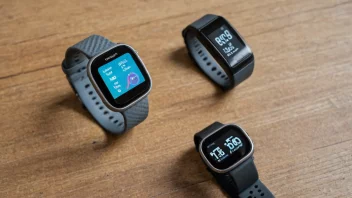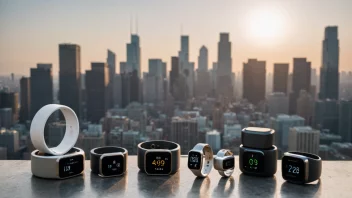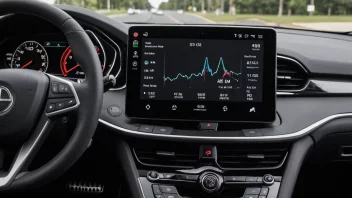In today's tech-driven world, wearables have become essential companions for runners. They offer a plethora of features that help track performance, monitor health, and enhance the overall running experience. Smartwatches and fitness trackers are two popular categories of wearables, each with its unique strengths and weaknesses. This article will compare these two types of wearables, examining their features, benefits, and drawbacks to help you choose the right one for your running journey.
Overview of Smartwatches
Smartwatches are multifunctional devices that combine the capabilities of a traditional watch with smartphone features. They often include various applications beyond fitness tracking, such as notifications, music control, and even mobile payments. Popular models include the Apple Watch, Garmin Forerunner, and Samsung Galaxy Watch.
Pros of Smartwatches
- Versatility: Smartwatches offer a wide range of apps and features, making them suitable for various activities beyond running.
- Notifications: Stay connected while on the go with call, text, and app notifications directly on your wrist.
- GPS and Mapping: Most smartwatches come with built-in GPS, allowing for accurate tracking of your running routes.
- Music Storage: Many models allow you to store music or connect to streaming services, letting you run without your phone.
Cons of Smartwatches
- Battery Life: Due to their multifunctionality, battery life can be shorter compared to fitness trackers, often requiring more frequent charging.
- Price: Generally more expensive than fitness trackers, which may not appeal to budget-conscious runners.
Overview of Fitness Trackers
Fitness trackers focus primarily on health and fitness monitoring, offering features tailored to tracking activities like running, walking, and workouts. Models such as Fitbit Charge, Garmin Vivosmart, and Xiaomi Mi Band are popular choices among fitness enthusiasts.
Pros of Fitness Trackers
- Specialized Features: Fitness trackers are designed specifically for monitoring physical activity, providing in-depth metrics like heart rate, sleep patterns, and step counts.
- Battery Life: Typically, fitness trackers boast longer battery life, often lasting several days or even weeks on a single charge.
- Affordability: Generally, fitness trackers are more budget-friendly than smartwatches, making them accessible for all runners.
Cons of Fitness Trackers
- Limited Functionality: They may lack the advanced features of smartwatches, such as app support and notifications from your phone.
- Screen Size: Smaller displays can make it harder to read notifications or navigate through settings.
Comparison of Key Features
Activity Tracking
Both smartwatches and fitness trackers offer robust activity tracking, but the depth and variety of metrics can differ significantly. Smartwatches typically provide more detailed metrics, while fitness trackers focus on fundamental data points. For runners, the ability to analyze pace, distance, and heart rate can be crucial, and both types can meet this need.
Health Monitoring
Smartwatches often include comprehensive health monitoring features, such as ECG readings and blood oxygen levels, which are typically more advanced than those found in fitness trackers. However, many fitness trackers still offer essential heart rate monitoring and sleep tracking.
Battery Life
A significant distinction lies in battery life. Fitness trackers often last longer due to their simpler functionality. Smartwatches may require daily or every few days charging, while fitness trackers can provide weeks of use, making them more convenient for long-distance runners.
Price
When considering your budget, fitness trackers tend to be more affordable, with many options available under $100. In contrast, smartwatches can start from a higher price point and reach up to several hundred dollars depending on features.
Which One is Right for You?
The choice between a smartwatch and a fitness tracker ultimately depends on your running goals, lifestyle, and preferences. If you value multifunctionality and connectivity, a smartwatch might be the ideal choice. On the other hand, if you prioritize fitness tracking and battery life, a fitness tracker may better suit your needs.
Conclusion
Both smartwatches and fitness trackers have their unique advantages and can significantly enhance your running experience. Smartwatches offer versatility and advanced features, while fitness trackers provide focused monitoring and longer battery life. Assess your running habits and technological preferences to determine which wearable aligns best with your lifestyle. Regardless of your choice, integrating wearables into your running routine can lead to improved performance, motivation, and enjoyment.






